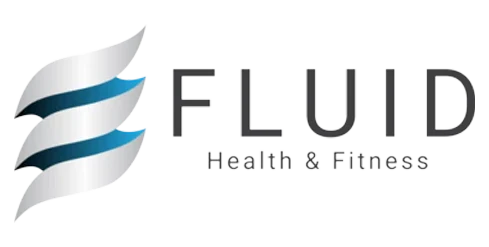Support Your Immune System
with Wellness & Good Nutrition
How can you support your immune system to protect yourself this winter? Now is the time to double down to optimize your health. Consider these 5 things you can start doing today.
1). Get enough sleep - can’t stress this enough. Aim for 7-9 hours of good sleep if you really want to focus on enhancing your immune system this time of year. While good sleep is beneficial for our immune system, on the flip side, we know that poor sleep is associated with weight gain, food cravings, anxiety, and low energy. If you’re not sleeping well, pursue options to find a solution. Visit with your doctor about a sleep study or a health coach for ideas about good sleep hygiene.
2). Tame your stress level. Stress does indeed affect our immune system. So instead of overexposing yourself to a worrisome environment (for example excess news or negative influences) keep your environment in balance. Choose to include things that make you feel empowered like taking care of your health and nutrition, meditation, prayer, laughter, helping others, being with friends and family who fill your life with positivity.
3). Make sure to keep up on your hydration by filling up a large water bottle a few times each day. Fruits can also be a hydrating food source. Flavor your water with lemon, lime, or other fruits.
4). Learn about eating balanced meals that include healthy carbohydrates, lean proteins, and healthy fats. Include 5-9 servings of fruits and vegetables to really set yourself up for optimal health this season. Limiting excess sugary drinks and treats will benefit your healthy weight goals AND YOUR immune system. Limit alcohol to 1-2 drinks.
5). Protect yourself from nutrient deficiencies. Many trendy diets put people at a higher level of risk since they often leave out whole food groups. Work with a registered dietitian to make sure you are Including all the nutrients & foods that enhance your immune system this time of year.
3 Important Nutrients
Along with good balanced meals - make sure you are getting enough vitamin C, vitamin D, and zinc in your diet. As a Registered Dietitian, I have always been a "food first" proponent. The decisions we make in the kitchen matter. Here are food sources of some of the big players that can help support our immune system.
Vitamin C - go for the brightly colored orange, red, and green fruits and vegetables. If you need additional vitamin C ask a health practitioner about supplementing with 500mg 1-2x/day. There is no good evidence for taking more than that and excessive amounts of vitamin C can cause diarrhea - and diarrhea is NOT good for your immune system.
Vitamin D - crucial for our immune system and some of us may already be deficient. Vitamin D is mostly found in dairy and eggs. The best “helper of Vitamin D is sunlight. If you don’t eat these food sources of vitamin D or don’t get enough sunshine (15-30 minutes at least twice a week) then you could be at risk for a low Vitamin D. Ask your doctor to check your vitamin D levels to understand if you need to replenish it. Vitamin D has been implicated in a significant number of severe cases of COVID 19. If you are low, you’ll want to supplement to be sure you are optimizing your immune system. For most individuals it’s safe to aim for 2000 to 4000 IU of vitamin D this time of year. If you are taking a good multivitamin it may include this amount already. If you are deficient you will likely need a higher absorbable recommendation.
Zinc - In the form of lozenges (better than getting zinc in pill form) has been shown to reduce the severity and duration of colds and upper respiratory symptoms. Without onset of symptoms or a documented deficiency – it is likely not necessary for healthy individuals to supplement with Zinc. Instead aim to get good food sources of zinc which includes chicken, grass fed beef, beans, nuts, yogurt, whole grain breads, crackers, and cereals.
The Institute of Functional Medicine (IFM) is also looking at potential immune health benefits of some of these nutraceuticals: vitamin A, selenium, quercetin, green tea, resveratrol, elderberry, echinacea, melatonin, N-acetylcysteine (NAC), and curcumin. With any decision to use supplements, always look to your doctor, health practitioner, or registered dietitian for individual recommendations - since we are all very different humans.
Create A Healthy Nutrient Shopping List
Here are some examples of how to incorporate nutrient-dense foods to support your immune system through your eating:
- Vitamin C – citrus, papayas, all berries, kiwi, leafy green vegetables, broccoli, & peppers.
- Vitamin D – salmon, fatty fish, eggs, dairy, cheese, mushrooms; Plus 20 min. of sunshine/ day.
- Zinc – seafood, chicken, grass fed beef, pumpkin seeds, whole grains, beans, lentils & legumes.
- Vitamin A – tuna, sweet potatoes, carrots, squash, spinach, cantaloupe, peppers, grapefruit, and broccoli.
- Selenium – 2 Brazil nuts a day (From Brazil, not China), tuna, shellfish, eggs, sunflower seeds
- Magnesium – Chocolate, avocados, nuts, beans, seeds (may be helpful for good sleep)
- Quercetin – Apples, onions, dill, fennel, oregano, capers, grapes, berries, green tea, citrus fruit
What can you do today?
- Aggressively tackle any sleep issues.
- Create a healthy physical environment for less stress.
- Prioritize hydration
- Make sure your diet is balanced with healthy carbohydrates, lean proteins, and healthy fats.
- Avoid excess sugar and alcohol.
- Ensure you are getting all the micronutrients from the lists above.
Meet with a registered dietitian for healthy nutrition recommendations if you have challenges related to high blood pressure, heart disease, or type 2 diabetes. Managing these health conditions will be especially important since all 3 of these health conditions are linked to more severe COVID infections. Eating a diet that emphasizes fruits, vegetables, whole grains can be a good place to start.
Regardless of whether you want to optimize your immune system or if you just want to eat healthier ~ At Fluid Health and Fitness we help people navigate individualized plans for success.
Jen Sletten RD, MA
Registered Dietitian
Masters Counseling Psychology


